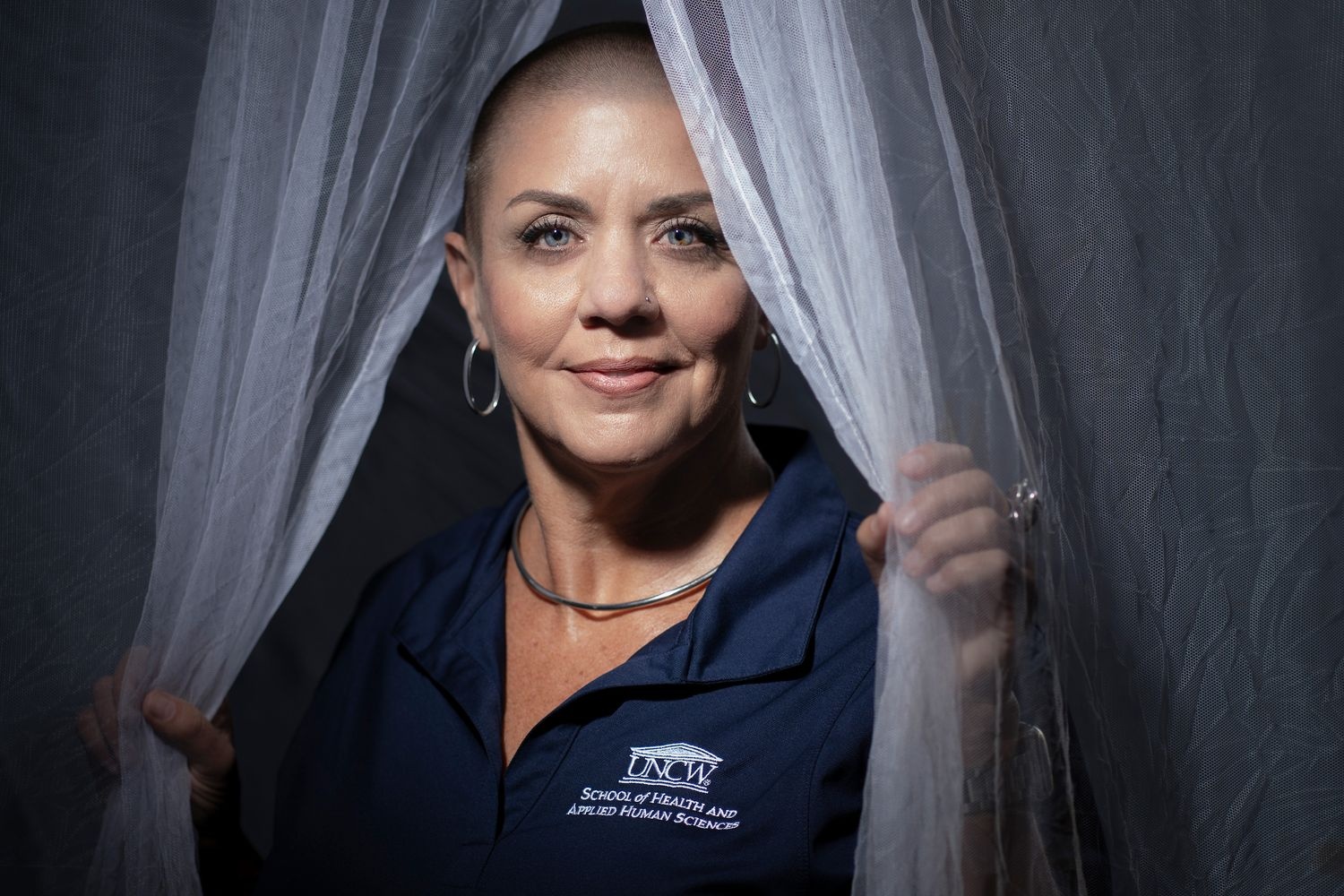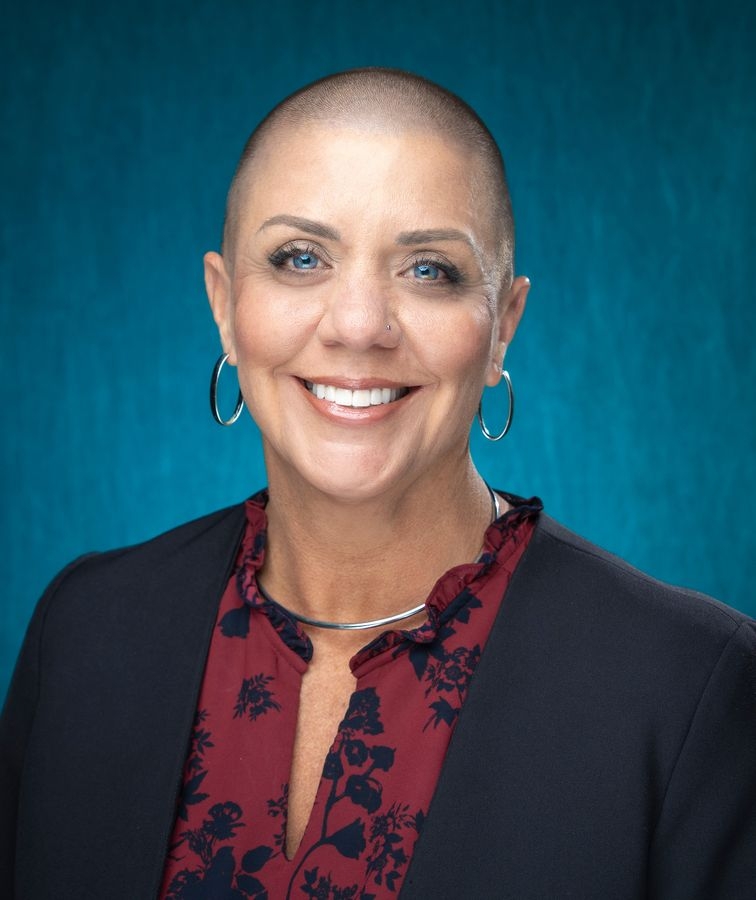
Photo: JeffJanowski/UNCW
In Uganda, malaria remains a persistent and deadly threat, infecting up to 500 people per 1,000 in high-transmission areas. This endemic disease, transmitted by the bite of infected Anopheles mosquitoes, claims thousands of lives each year. There is, however, a method of prevention that has proven effective in other regions of the world and relies on traditional principles of public health. Associate Professor Michelle Cathorall, School of Health and Applied Human Sciences, is leading a community-driven, student-engaged research project that leans on these principles and is aimed at curbing the spread of this ancient disease, working closely with local partners to create a sustainable solution.
Cathorall and her students, in partnership with Ndejje University and local leaders in Uganda's Luwero District, are developing the Malaria Mastery Prevention Program, an effort that combines education, practical prevention skills training and improved access to rapid testing to break the cycle of infection. The program's cornerstone is training the community health workers to implement the program, removing barriers and fostering sustainability. What began with students conducting door-to-door needs-assessment surveys has grown into a decade-in-the-making intervention project built on research, collaboration and community input.
The project goes back to 2015, when Cathorall began working with Ndejje to identify a potential research partnership. After three years of long-distance planning, she and 13 students made their first trip to Uganda in 2018, where they conducted needs-assessment surveys in rural villages. Those initial conversations with community members revealed that malaria was the most pressing health concern — a focus that has shaped the direction of the work ever since.
Through surveys and qualitative data collection, Cathorall's team discovered that many individuals do not fully grasp how malaria is transmitted or when to seek testing which leads to delayed diagnosis and treatment, allowing the disease to spread more easily. Shifting this mindset and educating the community about the seriousness of malaria and the importance of getting tested within 24 hours of symptoms and treated within two hours of a positive test to prevent further transmission became the program's goal.
"We call it the cycle of infection. If you can break that cycle at any point — not getting bitten, getting tested early, getting treated early — you can eliminate a disease." - Michelle Cathorall
In 2023, Cathorall's team conducted an 83-question survey to assess the community's understanding of malaria. The survey covered topics such as transmission, symptoms and prevention. Questions included: How do you get malaria? When should you get tested? What steps do you take to protect yourself from mosquito bites? What do you do if you think you have malaria? Who is most at risk? Do you use a mosquito net? Do you think your neighbor uses one?
"We honestly asked about everything we possibly could, and from that information we were able to identify some key gaps in knowledge. For example, 60% knew you get malaria from a mosquito bite, which means 40% didn't know that," Cathorall said. "We then used that data to develop part of our program."
One of the biggest challenges in addressing malaria in Uganda, identified through years of the team's information gathering, is many community members do not recognize the severity of the disease. Because malaria is so common, people often dismiss it as a routine illness, as its symptoms — fever, chills, nausea and vomiting — mimic those of the flu. This can be particularly dangerous for children, who may suffer long-term health consequences such as cognitive delays or hearing loss if the disease goes untreated. The Malaria Mastery Prevention Program aims to change that.
Cathorall's research project and development of the program have offered invaluable hands-on experiences for UNCW students, who work alongside local communities and student counterparts from Ndejje each summer. They engage in every phase of the work, from data collection and research to program development, gaining firsthand insight into the challenges and impact of global public health. Students like Jakub Kreuter '24 and Alyssa Robb '23 have made notable contributions, with Kreuter submitting an article for publication and Robb presenting her findings at academic conferences.
The annual trip has made huge strides over the years. In 2024, the program entered a new phase — evolving beyond information gathering and implementing the first iteration of the program. This focused on directly engaging the community with educational lessons on malaria prevention and practical activities, such as repairing and repurposing mosquito nets, a vital and scarce resource in the region.
"That was one of the lessons. We gave everyone a needle and thread and a small piece of net and taught them to repair it. Most people had never repaired their nets before," Cathorall said.
A central goal of Cathorall's work is long-term sustainability. By training local community health workers to deliver testing and education, the program encourages community ownership.
"The program is designed to build capacity and strength within the community. The community health workers are already trusted people within the community. They're the first line of defense that people go to. It's the perfect way to make sure that this information gets out there."
Cathorall is exploring collaborations in Kenya and Namibia to expand the program's framework and possibly address other infectious diseases.
"I'm not bound by the disease or the health issue," Cathorall said. "I am an interventionist, and I'm an implementation scientist. I'm interested in the process of how something gets implemented, adopted and sustained in the community."
- Michelle Cathorall
In May, Cathorall was selected for a Fulbright U.S. Scholar Award in Public Health, which will support her project "Empower Health: Training Village Health Technicians for Effective Malaria Prevention."
"Dr. Cathorall's work exemplifies the heart of public health — collaborative, data-driven and community-centered. The Malaria Mastery Prevention Program is not only improving lives in Uganda by addressing a critical health issue but also shaping the next generation of public health professionals through immersive, global learning experiences. This is the kind of work that defines who we are as a college — committed to meaningful, sustainable impact." - Jack Watson, dean of the College of Health and Human Services
This article has the following tags: UNCW News Homepage Academics CHHS Research & Faculty Affairs CHHS - College of Health & Human Services Research & Innovation Area Innovation & Discovery CHHS School of Health & Applied Human Sciences



